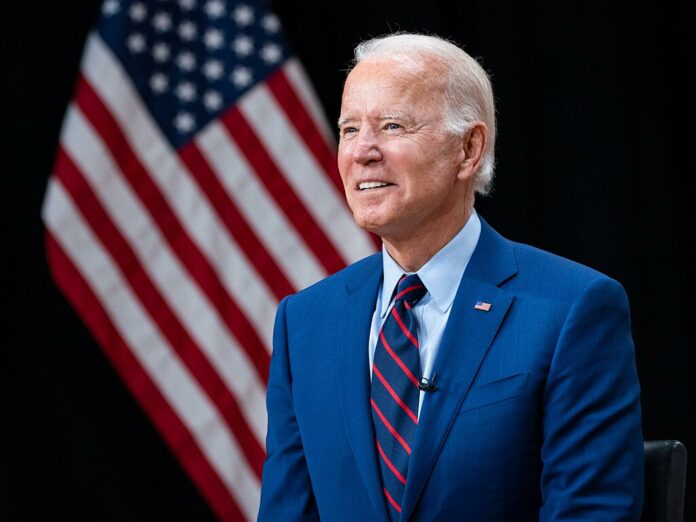President Biden clarifies his comments by focusing attention on Trump amidst rising tensions and recent violence
In a recent NBC interview with Lester Holt, President Joe Biden defended his controversial statement urging Democrats to put Donald Trump in a “bullseye,” just days after an assassination attempt on the former president. Biden clarified, “I didn’t say crosshairs,” insisting that his intent was merely to emphasize focusing on Trump’s policies.
During the interview, Biden addressed the backlash from fellow Democrats urging him to step back from the race following a poor performance in a June debate. Instead, he found himself explaining his rhetoric in light of the alarming events surrounding Trump’s safety.
Embed from Getty ImagesBiden explained that his remark aimed to draw attention to the lack of focus on Trump’s agenda, stating, “What I guess I was talking about at the time was there was very little focus on Trump’s agenda.” He noted the term “bullseye” referred to directing attention, not inciting violence.
Despite the gravity of the situation, Biden defended his use of strong language. “It was a mistake to use the wor — I didn’t say crosshairs… I meant focus on him,” he stated, emphasizing the need to highlight Trump’s political actions and statements.
Biden faced pointed questions from Holt about whether he had considered the implications of his words. The president responded, “How do you talk about the threat to democracy… without addressing the rhetoric coming from my opponent?”
Following the assassination attempt on Trump, where he was grazed by a bullet at a rally, Biden reached out to express concern for Trump’s well-being. He described their conversation as cordial and conveyed his prayers for Trump and his family.
When asked if the attack changed the dynamics of the campaign, Biden remained uncertain, stating, “I don’t know and you don’t know either.” He noted Trump’s selection of Ohio Senator J.D. Vance as his running mate, suggesting Vance’s previous criticisms of Trump could be overlooked in their alliance.
Biden expressed his frustration with the political climate, citing inflammatory signs and hostility he observed during his travels. He condemned the viciousness surrounding the current discourse, remarking on the need for civility.
As calls from Democrats for him to step down continued, Biden reaffirmed his commitment to the nomination, citing the support of 14 million voters. He dismissed concerns about his performance in the debate, claiming he had only seen parts of it.
Biden’s rhetoric in the lead-up to the assassination attempt drew criticism from Republicans, especially his statements regarding Trump regaining power “over my dead body” and labelling him a potential “dictator.” Despite the backlash, Biden called for a shift in focus towards Trump’s agenda.
Analysis:
Political: Biden’s defence of his remarks indicates a critical moment for his administration as he navigates heightened political tensions. The assassination attempt on Trump places both candidates under scrutiny, reshaping the political landscape as Biden seeks to maintain a firm stance against extremist rhetoric.
Social: This incident reflects broader societal issues regarding political discourse in the United States. Biden’s comments and the subsequent attack highlight the escalating nature of political rhetoric and its potential consequences, urging a collective reevaluation of how politicians communicate.
Racial: The rhetoric surrounding this event also touches on racial dynamics within political movements. The responses from both parties reveal underlying tensions that often intersect with issues of race, particularly in the context of the political base supporting each candidate.
Gender: Gender dynamics play a subtle role in the political environment. As the first female vice president serves alongside Biden, the broader implications of their leadership styles and communication strategies may influence perceptions of how gender interacts with political discourse.
Economic: The political climate following the assassination attempt could have significant economic repercussions, particularly regarding campaign financing and voter mobilization. Biden’s strategy to address Trump’s policies is crucial for maintaining support among Democratic voters concerned about economic stability.
